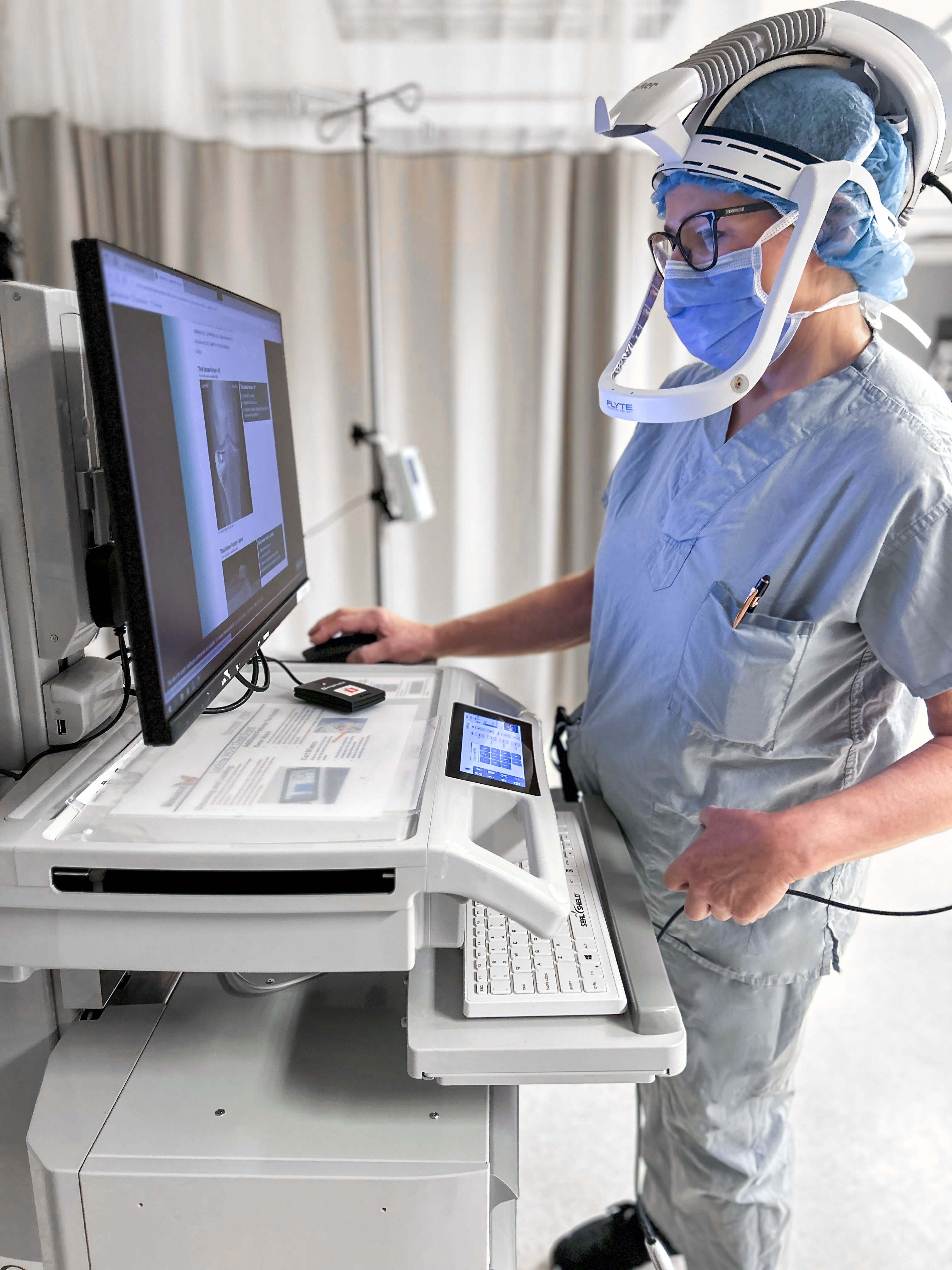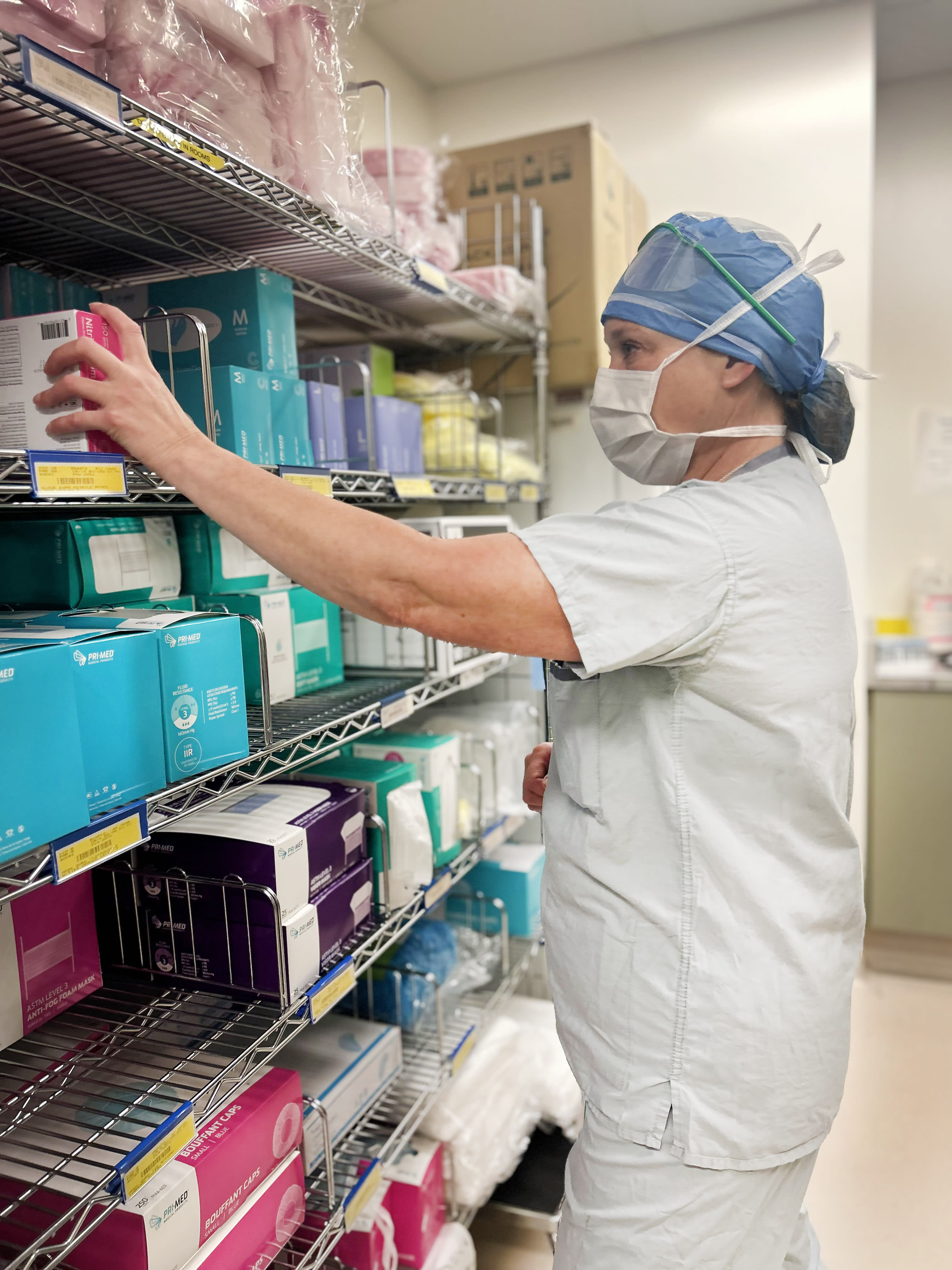As patients are wheeled into the operating room, Registered Nurse First Assistants (RNFAs) are often the last faces they see before surgery, providing their final source of comfort and reassurance.
These healthcare professionals are dedicated to preparing patients at every stage of the surgical process, including being a strong source of emotional support. In 2024, Niagara Health’s hospitals performed more than 39,895 surgical procedures. The expertise of RNFAs is integral to providing high quality surgical care at Niagara Health.
Before patients are admitted to surgery, RNFAs work meticulously to lay the foundation for a positive surgical experience. They also address concerns from the patient and their family while being a reliable source of emotional support.
“The RNFA functions interdependently with the surgeon, applying the knowledge, skill and judgment necessary to assist in performing a safe operation,” says Cheryl Hooten, an RNFA at the Niagara Falls Hospital. In order to ensure a seamless transition to the operating room, accurate pre-operative assessments must be carried out to foster a positive experience. “The RNFA plays a key role in working with the surgeon to ensure a safe operation. We ensure that patients are ready and confident before their surgery,” she says.

Cheryl Hooten, RNFA, helps prepare patients for surgery at the Niagara Falls site, offering reassurance before they enter the operating room.

Rebecca Klacko, RNFA, supports surgical teams at the Marotta Family Hospital, ensuring patients receive the best possible outcomes.
In addition to playing a crucial role in the pre-operative stage, RNFAs are also essential to a patient’s experience in the operating room. During the operation, RNFAs assist surgeons and the broader surgical team with operative techniques including exposure, retraction, suturing and other forms of tissue handling.
“We stay updated with the latest advancements to ensure we’re providing the highest quality care,” says Rebecca Klacko, an RNFA at the Marotta Family Hospital in St. Catharines.
She says RNFAs often act as patient advocates, ensuring the unique needs of each patient are respected.
“Our role is to support the team and help ensure the best possible outcomes. We provide a reassuring presence and ensure that everything is in place for a successful surgery,” she explains.
Following surgery, in post-operative care, RNFAs transition patients into recovery and continue essential care protocols.
A patient’s surgical journey can be stressful and RNFAs help alleviate that.
“Working here has enabled me to help others in my community,” says Anny Descoteaux, an RNFA at the Welland Hospital.
RNFAs also teach important post-operative care and education to the patient and family prior to discharge. As patient advocates, RNFAs consult with other healthcare professionals to enhance the patient’s experience and importantly, recovery.

